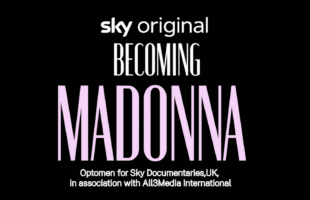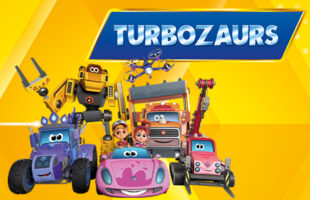One can still smell the fumes blown off the candles of Discovery Kids’ first birthday cake and already the channel is cooking up its next original production entitled KIDS VS FILM, launching on June 1 across Asia. KIDS VS FILM follows the broadcaster’s inaugural children’s commissions Mystery Hunters India, which premiered on Discovery Kids’ India feeds in December 2012; and wildlifebased series ADVENTURE 8: ZOO GAMES, which aired in Southeast Asia and Hong Kong earlier this year.
The idea for the 12-parter, KIDS VS FILM, is drawn from the flagship Discovery Channel’s First Time Filmmakers initiative, which was launched in Asia in 2000 to provide local non-fiction filmmakers a platform to showcase their docu-making skills. Following in the channel’s documentary roots, each episode of KIDS VS FILM gives young budding documentary filmmakers from across Asia exclusive access to exciting locations to shoot unique original minidocumentaries based on an assigned theme.
Kevin Dickie, Senior Vice President, Content Group, Discovery Networks Asia-Pacific (DNAP), tells TV ASIA Plus that he felt it was the right time to move into the original children’s programming space. “The big thing for us is that we needed to secure a certain level of distribution. It became clear very early on that the channel was getting above the level of distribution that we anticipated. We (also) got into the Indian market very early on and that gave us the scale of business to be able to invest in production.” In Asia, Discovery Kids currently airs in Singapore, Malaysia, Indonesia, the Philippines, Thailand, Hong Kong and India.
This investment has seen both KIDS VS FILM and ADVENTURE 8: ZOO GAMES becoming fully funded by DNAP. “Moving forward, we’re looking to try and get more funds. We’ll definitely be commissioning more kids content in 2013 and 2014, so we’re looking at more ideas now.”
Each episode will see two teams, guided by hosts Oli Pettigrew and Mohini Sule, compete to produce and shoot a two-minute documentary. Teams research, write, edit, direct and shoot their own mini-docs. The aim of the show seeks to have young viewers and their families learn alongside the KIDS VS FILM teams as they embark on a film-making adventure in experiences such as swimming with sharks at the Underwater World Singapore, abseiling down a cliff at an island, fire-fighting, etc. This reinforces the channel’s commitment to the idea of co-viewing. “We found through research, and I can attest to this, that one of the great things about Discovery Kids is in co-viewing. So the kids enjoy watching it, and parents also enjoy watching it,” says Dickie.
Dickie says the aspirational quality is what the network looks for in its programming, which is both brand-defining and brand-differentiating. “The aspirational aspect of the channel is there throughout the show and it is aspirational on many levels. It’s about giving kids the opportunity and in the same way that’s what the channel does – explore the world in an entertaining and an engaging way; and it’s aspirational in the sense that it presents opportunities.”
KIDS VS FILM provides not just an opportunity for kids; it also gives Discovery a property that is replicable in other markets. Dickie adds that the show was conceived as a format, and while there are no concrete plans to license it for now, the broadcaster intends to monitor audience reaction and see how it performs first before deciding on follow up projects. Production partner Beach House Pictures’ managing director Jocelyn Little echoes Dickie’s sentiments. “As a whole, we thought ‘Yeah we have to format the show’ even though each episode has different elements, we go to different places with the kids and the kids themselves bring a whole lot of originality to each episode, but at its core it’s a format.”
The project is not without challenges. According to producer Bryan Seah from DNAP, one challenge lies in creating a format that both educates and engages. “For the Discovery Kids brand we were always playing on its slogan ‘Smart Fun’ – what needs to be smart but for me, I think children will learn better when it’s fun. We want to make learning-how-to-make-your-own-documentary fun and engaging. Twenty-five minutes for adults is quite fast but for kids it’s like a lifetime, so you need to engage them,” says Seah.
Deconstructing the often technical process of filmmaking into snippets and tidbits that children can understand also proved challenging, adds Seah. Hence, the budding filmmakers are guided by a series of multiple-choice dashboards – production and technology tips by professional experts that will help them make key decisions on the style of their films during the documentary-making process.
For Beach House Pictures, who is widely known for its factual entertainment production, taking on a children’s genre was very much about diversifying its expertise. “It was something different for us but we actually had a great team on board. We brought in experts from Australia – Susan Oliver who is our executive producer with 20 years of experience working with kids. So it was kind of a learning experience for us as well,” says Little. “But at the end of the day, the essence of how the show works (is the same) – in terms of storytelling techniques – we’re just distilling down what we’ve been doing for 20 years, but into ideas for kids.”
Dickie agrees, and the choice of Beach House Pictures as production partner has to do with them possessing the same “Discovery” sensibility that Dickie believes the production company understands. “In some respect it was good to bring in a company that produces for Discovery and have them just adjust slightly for kids rather than a company that specialises in just producing for kids. So that was also part of the debate for us.”
The decision to model Discovery Kids after the flagship Discovery Channel has paid off for the broadcaster, and this is best summed up by a mother who attended the series launch event recently. “As a mother myself, I was really pleased that Discovery Kids was coming into this region because I suppose a lot of parents will agree that there is a lot of insipid programming on TV these days that doesn’t do a lot to enrich children’s minds.”








